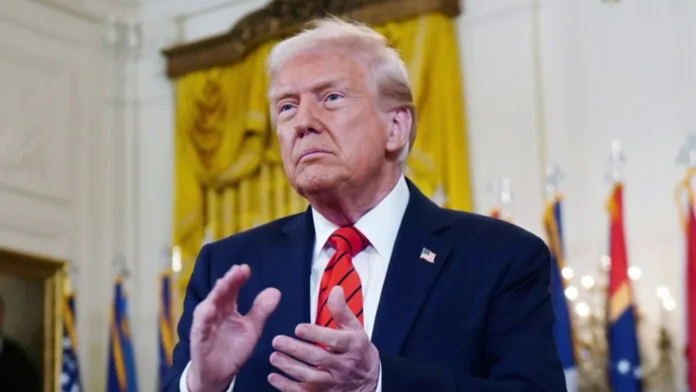Trump’s latest travel ban has sparked controversy as the White House imposes new restrictions on travelers from 12 nations. Additionally, seven other countries face partial visa limitations. The order, signed on Monday, cites national security risks as the primary reason.
The full ban applies to nationals from Afghanistan, Myanmar, Chad, Congo-Brazzaville, Equatorial Guinea, Eritrea, Haiti, Iran, Libya, Somalia, Sudan, and Yemen. Meanwhile, Burundi, Cuba, Laos, Sierra Leone, Togo, Turkmenistan, and Venezuela face partial restrictions.
Unlike the chaotic rollout in 2017, this ban takes effect immediately but allows a brief transition period. Authorities aim to prevent the airport disruptions seen last time. However, the order includes no expiration date, instead requiring periodic reviews.
The White House claims Trump’s latest travel ban will protect Americans from security threats. In a video statement, Trump referenced a recent Colorado attack to justify stricter vetting. Yet, the suspect was Egyptian, and Egypt is not on the banned list.
The proclamation also accuses some nations of refusing deported citizens and exploiting U.S. visas. Overstays and insufficient security cooperation further influenced the decision. Notably, only Iran and Cuba are officially designated state sponsors of terrorism.
Certain travelers can still enter despite Trump’s latest travel ban. Exemptions include U.S. green card holders, dual nationals, and approved refugees. Athletes attending major events like the 2026 World Cup also receive waivers.
Additionally, the State Department may grant case-by-case exceptions for national interest reasons. This flexibility aims to minimize disruptions for critical travelers.
Somalia pledged cooperation, while Venezuela mocked the U.S. as unsafe for visitors. The African Union urged balanced measures, warning of strained diplomatic ties.
Democrats and rights groups fiercely criticized the policy. Amnesty International called it “racist and cruel,” while Human Rights First condemned it as anti-immigrant.
As legal challenges loom, the debate over border security versus discrimination continues. The world now watches how Trump’s latest travel ban will reshape global travel and U.S. foreign relations.


